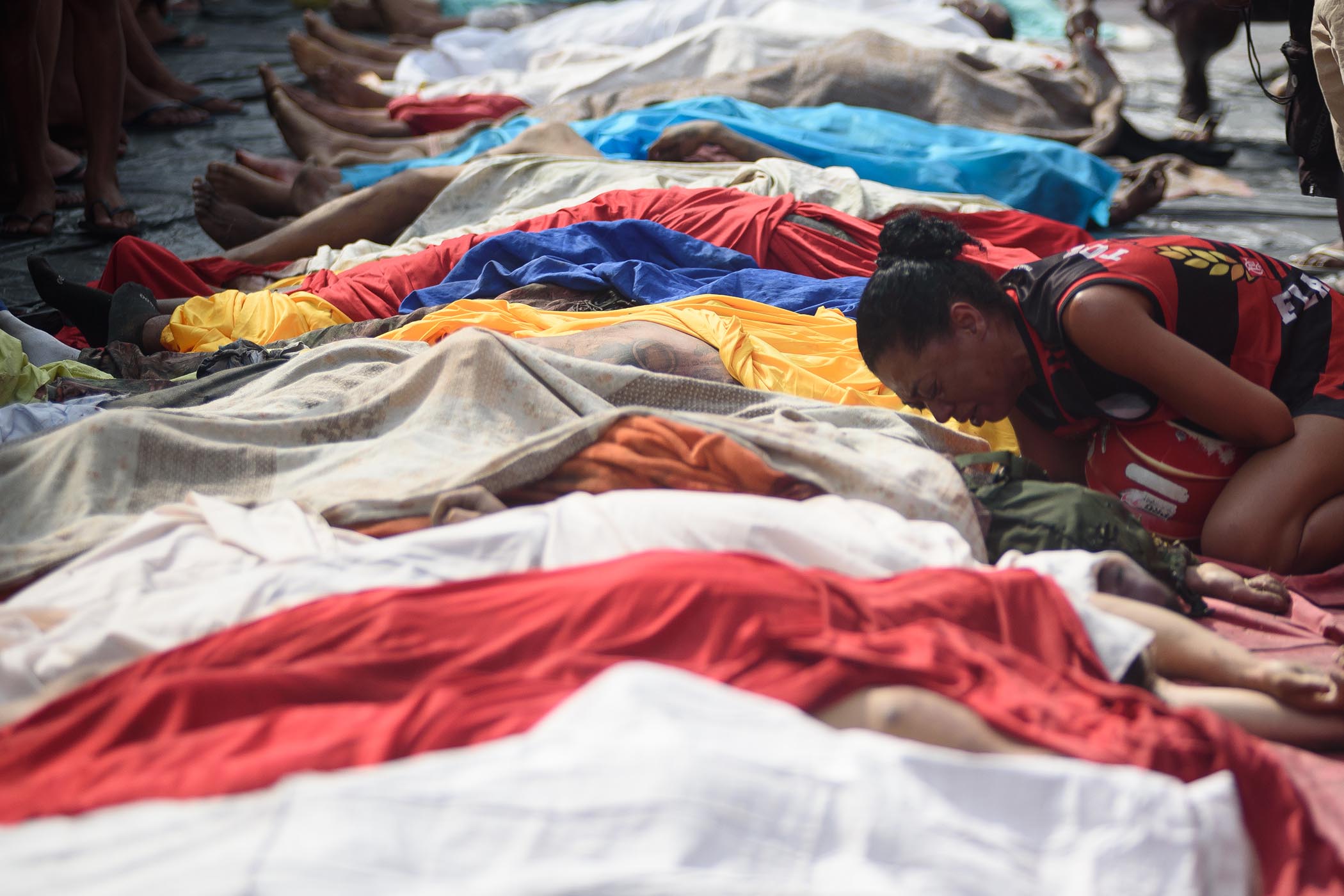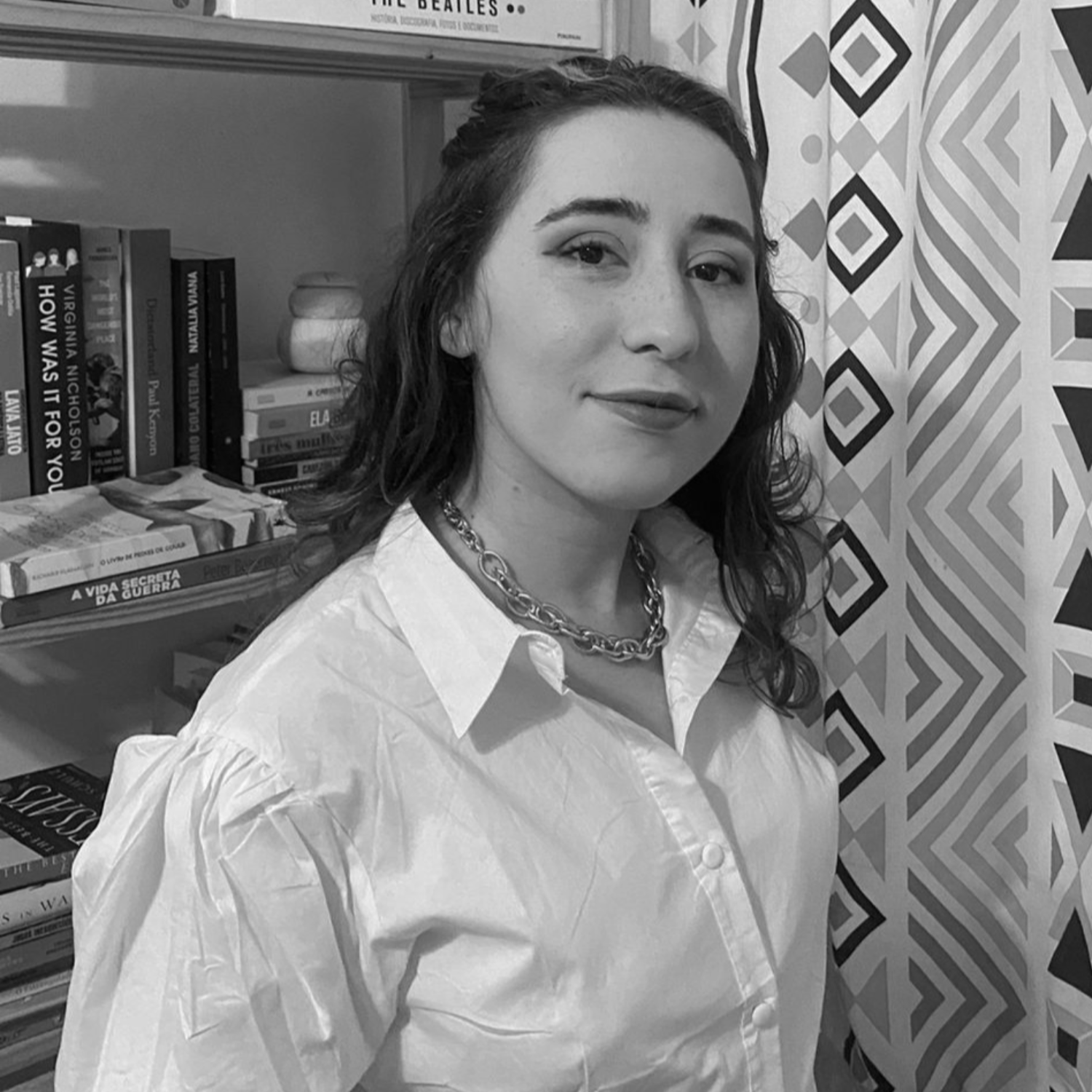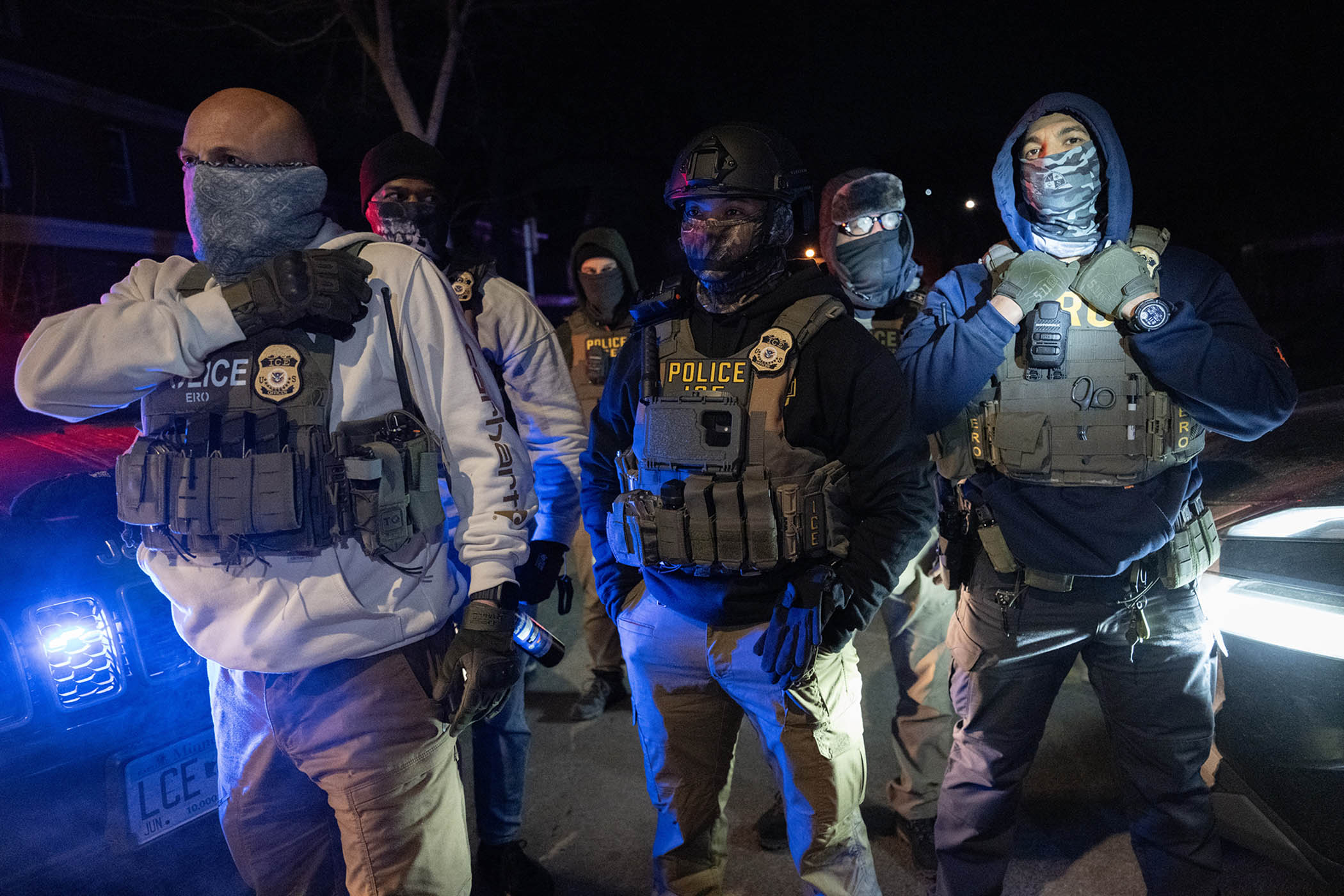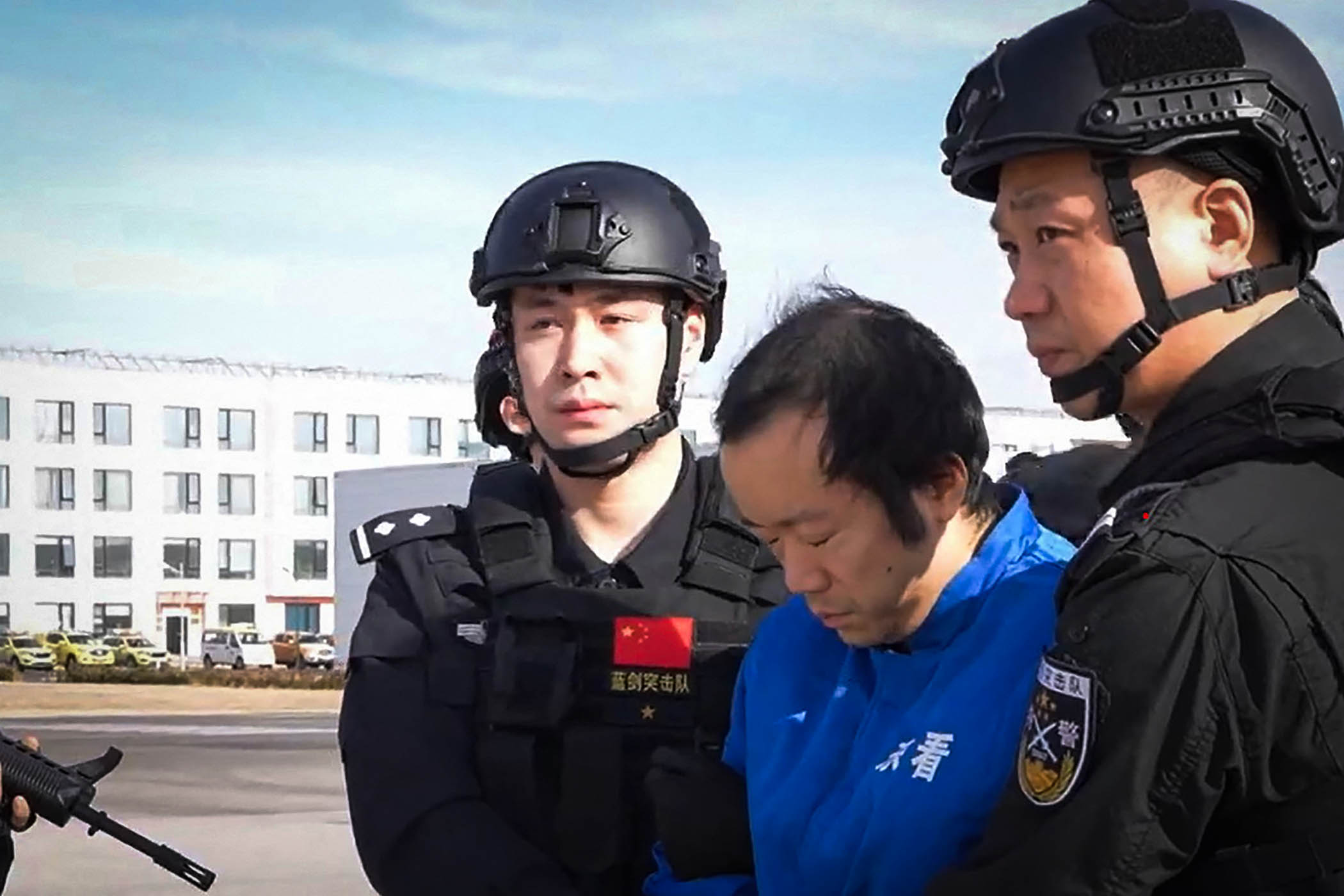Tauã Brito found her 20-year-old son, Wellington, among a line of about 70 bodies laid out in the main square of the Penha Complex, a cluster of favelas which are home to some 60,000 people in Rio de Janeiro. When her son stopped answering his phone the night before, Brito, a 36-year-old Black woman who sells homemade desserts, joined neighbours searching the nearby woods. Community and church leaders helped carry the dead to the square. When they reached Wellington’s body, his hands were tied and he had stab wounds.
Wellington was one of about 130 people killed in the deadliest police raid in Brazil’s history, launched at dawn last Tuesday. The aim of “Operação Contenção” (“Operation Containment”), according to the state government which controls the police, was to curb the advance of the Comando Vermelho (Red Command), the second-largest gang in the country. Authorities say most of the dead were “suspected” CV members, but only 43 had arrest warrants.
“I may not have supported all the choices my son made in life, but as a mother, I could never turn my back on him,” Brito said. She had to wait another three days before the authorities handed over his body for a funeral. “The coffin had to stay closed because his body was already too decomposed.”
Between 5,000 and 6,000 people are killed during police actions each year in Brazil
Between 5,000 and 6,000 people are killed during police actions each year in Brazil
Police operations in favelas are not uncommon, and between 5,000 and 6,000 people are killed during police actions each year in Brazil. But last week’s raid far surpassed the most lethal intervention so far, which left 29 people dead in the Jacarezinho favela in 2021. The United Nations called for “comprehensive police reform” and urged “swift, independent and effective investigations” into the raid.
But with Brazil holding presidential elections next year, and security rising up the agenda, operations like this may be repeated. Governor Claudio Castro, a member of far-right party Partido Liberal (PL) and an ally of former president Jair Bolsonaro, called the operation “a success”, saying “the only victims there were the four police officers” killed in action. On Friday he met six other governors, to launch what they dubbed a “peace consortium” to fight organised crime.
“These incursions generate headlines and political dividends,” said Robert Muggah, co-founder of the Igarapé Institute, a thinktank.
Left-wing president Luiz Inácio “Lula” da Silva was “shocked” by the deaths in Rio. In a video posted on social media, Lula argued that killing “achieves nothing. Even if they were all criminals, tomorrow there’ll be another 120 doing the same job. Operations like this put police, children and innocent families at risk.” Lula wants to use the moment to push a sweeping constitutional reform that would strip governors of much of their public security power and transfer it to the federal government.
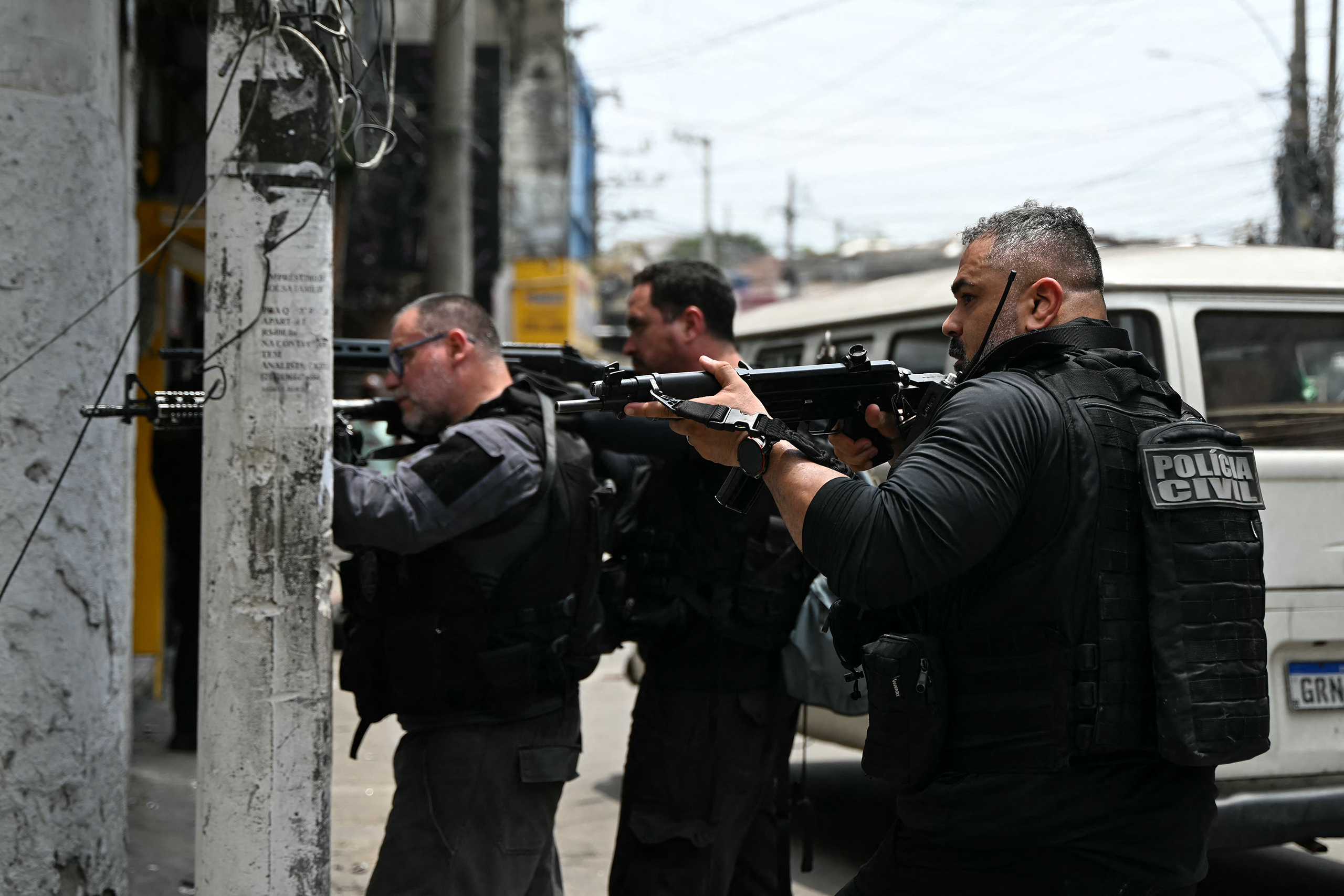
The real fix, says Muggah, will be far harder. Brazil needs first to reclaim gang-controlled territories – not through raids that “make a bad problem worse by reinforcing community mistrust”, but by restoring basic services such as transport, healthcare and schools.
Related articles:
“The state has always been violent toward the favela,” said community leader Lucia Cabral from the nearby Alemão Complex, which was also raided last week. “What we just saw is the result of years of policies that chose gunships over sanitation or hospitals.”
Next must come intelligence-led policing focused on financiers, logisticians, and corrupt insiders – “following the money”, said Muggah. Police operations should stay within the law and target arms and goods routes rather than favelas.
Newsletters
Choose the newsletters you want to receive
View more
For information about how The Observer protects your data, read our Privacy Policy
“What we’re seeing in Brazil is a series of overlapping forms of criminal governance in which cartels, militias and mafias are filling vacuums left by the state,” he said. “And the state elite – political and economic – are often acquiescing, cohabiting, colluding with or competing against these very same factions.”
Two months earlier a different kind of crackdown, “Operação Carbono Oculto” (“Hidden Carbon”), had targeted the country’s elite. Coordinated by federal tax auditors and prosecutors, it traced 46bn reais (£6.4bn) moved by the Primeiro Comando da Capital (PCC).
PCC is one of the world’s most powerful gangs, which dominates São Paulo not only through drug trafficking but by controlling other supply chains, such as fuel. Forty-two individuals and companies targeted were based on Faria Lima – a financial centre known as “Brazil’s Wall Street”.
“The growing penetration of organised crime into state institutions and into the legal or formal economy is something we saw in Colombia in the 1980s and 90s – what we call narco politics,” said Muggah.
Tackling that will be an enormous challenge and, so far, rightwing politicians pushing a more straightforward security agenda are finding support. According to an AtlasIntel poll published on Friday, 55% approve of the Rio raid, while half disapprove of Lula’s handling of public security.
Violence is now Brazilians’ top concern, polls show, and could become decisive in next year’s elections
Violence is now Brazilians’ top concern, polls show, and could become decisive in next year’s elections
It reflects a broader trend across Latin America. In El Salvador, Nayib Bukele’s tough crackdown on gangs has won him popular support, while Ecuador’s president Daniel Noboa appears to be following his lead. Such hardline policies may also find a sympathetic ally in Donald Trump’s revived “war on drugs” in the region. “There is a possibility the US may designate the PCC and the CV as ‘foreign terrorist organisations’, and that would have enormous consequences to Brazil,” says Muggah.
Violence is now Brazilians’ top concern, polls show, and could become decisive in next year’s elections – just as it was in 2018, when former army captain Bolsonaro, who argued that police officers who “kill criminals should be awarded medals”, won the presidency.
In the favelas, safety is a huge concern, says Cabral, “with traumatised children and schools shut down.”
As Tauã waited in the morgue, her seven-year-old daughter sent her a voicenote with a song she’d made up. “Mum, don’t cry any more. Wellington was gone too soon, but I’m here,” it said.
Photographs by Fabio Teixeira/Anadolu via Getty Images and Mauro Pimentel/AFP via Getty Images
